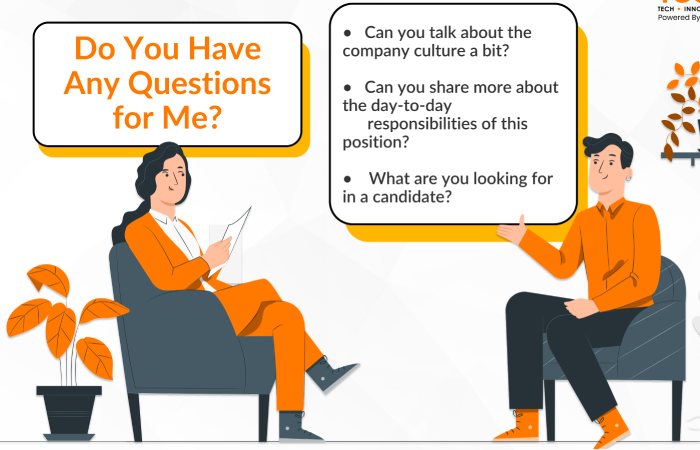
Interview Questions: Do You have Any Questions for Me?
Do you have any questions for me: Interviewing is almost finished and the hiring manager has offered you relevant information regarding the job. As the conversation is coming to a close, they ask, “Do you have any questions for me?”
This question is typically asked at the end of interviews and is a judgmentally important part of the conversation. Avoid the risk or uttering the word NO for you might be right that the job is well suited to your qualifications. In fact, interviewers are hinging for you to come up with questions—that gives you the proxy that you are interested in the position and the organization.
In this article, we discuss why it’s important to ask your interviewer questions, how many questions you should prepare, the types of questions to ask and the kinds of questions to avoid.
“Do You have Any Questions for Me” Why it’s Important
There are several reasons why asking questions is important, including:

It’s a Chance to Learn More
Your interview allows the hiring manager to gain information about yourself and your work experience, and personal achievements, on your part, it gives you an opportunity to meet and know more about the organization and the position. Usually, try to turn the conversation to the topics that were not discuss or the topics you would like to dwell more.
Asking Questions Shows Your Interest
Posing good questions in the interview confirms your level of interest region in the particular job. Finally, it proves to the hiring manager that a lot of effort has been devote to consider an employment opportunity in this position in this company. When asked right questions, you will be able to explain how you have come up with all what you have compiled. And how well you know the company and the industry and your drive to excel in the new position.
It Supports a Notable Final Impression
Getting to the interview stage signifies that you’re a top candidate. With considerate questions, you can continue to stand out from other contenders and demonstrate that you are a great fit for the role.
The Preparation Process
1. How Many Questions Should you Prepare?
That is why, for the sake of covering a lot of information in the interview. And when the hiring manager may unwittingly answer some of the questions that you have set yourself. It is advisable to come with up to 10 questions. It is preferable to jot your questions down in a note book or portfolio that you carry to the interview. Refer to this list when the inter-viewer asks, “Do you have any questions?” and choose two or three questions not covered earlier in the interview.
2. Research the Company
One of the ways of getting inform on the company is by researching on the company to see its history, and the company’s central mission and values. First of all, one can visit the company’s website and explore more about it. You can also use the search engines for articles in the recent newspapers available in the internet. As you peruse through the information use it to guide the kind of question that you are likely to encounter.
3. Rehearse
Think of the interview as a conversation between yourself and the hiring manager. Practicing your question in early can make you more comfortable and boost your confidence on the day of the interview.
Types of Questions to Ask
Here are some types of question you can consider asking during your interview:
- What does a typical day look like for a person in this position?
- What are your short and long term goals for a new hire with this job title?
- Why do you enjoy working here?
- How would you describe the company’s culture?
- What growth does the company expect to see within the next five years?
About your Qualifications
- What qualities do you look for in a candidate?
- Do you have any anxieties about my experience or skill set?
- Are there hesitations regarding my fit with the role or company?
Topics to Avoid
If you’re still in the early stages of the interview process, avoid asking question about salary, benefits, vacation time or company perks. These questions should be save for when you are formally offer the job. If you ask about these things too early, you could send the message that you’re more interested in how the company can advantage you, not how you can contribute to the company.
